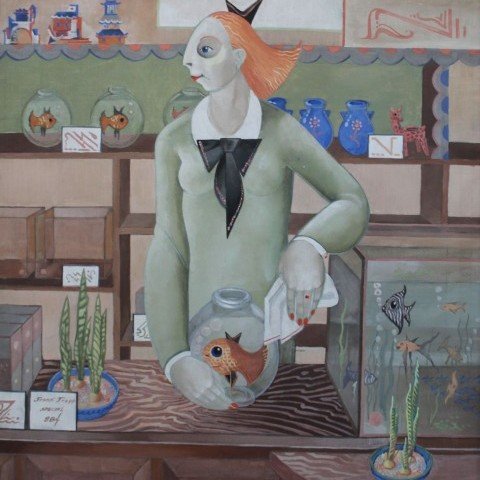Frank Anderson Trapp was a Fulbright Scholar, received a B.A. from Carnegie Institute of Technology and M.A. and Ph.D. degrees from Harvard University. A faculty member at Williams College. Joining Amherst College in 1956 he served as rotating chairman of the Fine Arts Department and was the director of the Mead Art Museum for 20 years, retiring from Amherst College in 1992.
During his tenure at Amherst, he was a respected scholar who produced a number of books, including the monograph Clarence Holbrook Carter, Peter Blume and the Grand Tradition, British Art From Amherst College and The Attainment of Delacroix, which is considered a benchmark in its field. “As a teacher he was very, very bright,” says Professor of Art Joel Upton, who worked closely with Trapp for many years. “He was trained in the tradition of the broadest possible awareness of global art. He could speak in a learned way about Greek, Egyptian, Roman, Japanese and American art, and on and on, from caves to condos, West to East. I saw him communicate art on the deepest possible level to students—not art as documentation of culture, but art as human inspiration. He did this repeatedly, and he did it with real passion.”
Trapp was an accomplished sculptor and painter, producing stylized and whimsical subjects in the 1940’s and impressionist-style paintings of the Amherst landscape throughout the 1960s. Trapp’s most visible legacy at the college is the Mead Art Museum, which, with founding director Charles Morgan, he helped create. In addition to the art he purchased for the museum, Trapp donated 70 items from his own collection, including work by Isabey, Maillol, Rivière, Tissot, Callot, Vernet, Daumier and, of course, Delacroix.During his years as museum director, he mounted a number of major exhibitions, most notably a retrospective of the International Exhibition of Modern Art, better known as the Armory Show, the seminal event that introduced modern art to America in 1913. As part of that exhibition—Trapp’s first as director—he arranged not only for the loan of one of the most controversial paintings from the Armory Show, Marcel Duchamp’s Nude Descending a Staircase, but also for a visit by Duchamp himself, who later became friends with Trapp.

